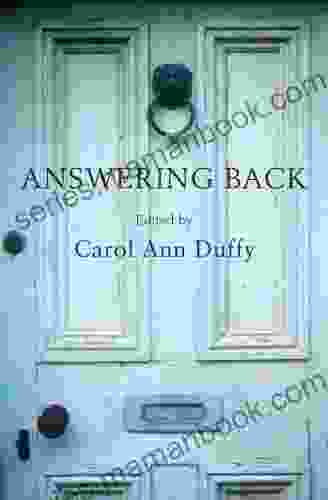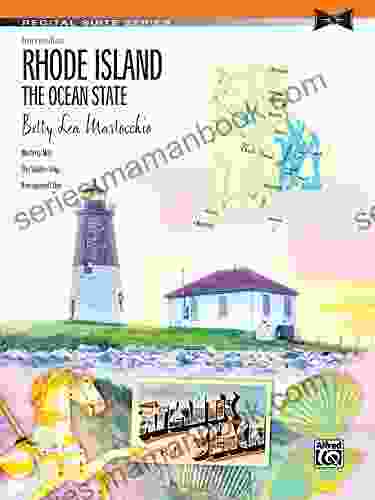Living Poets Reply to the Poetry of the Past: A Journey Through Time and Verse

Poetry is a living art form, constantly evolving and responding to the world around it. Throughout history, poets have engaged in a dialogue with the poetry of the past, borrowing, alluding to, and subverting earlier works to create new and innovative art. This article explores some of the ways in which living poets have replied to the poetry of the past, shedding light on the complex and ever-evolving nature of poetic tradition.
4.6 out of 5
| Language | : | English |
| File size | : | 408 KB |
| Text-to-Speech | : | Enabled |
| Screen Reader | : | Supported |
| Enhanced typesetting | : | Enabled |
| Print length | : | 160 pages |
Borrowing and Allusion
One of the most common ways that living poets reply to the poetry of the past is through borrowing and allusion. This can take many forms, from direct quotation to subtle references. For example, in her poem "Homage to My Hips," Audre Lorde borrows the opening line of Walt Whitman's "I Sing the Body Electric" to celebrate the beauty and power of the female body. Similarly, in his poem "My Papa's Waltz," Theodore Roethke alludes to William Blake's "The Tyger" to explore the complex relationship between father and son.
Borrowing and allusion can be a powerful way for poets to connect with the past and to build on the work of earlier poets. By referencing earlier works, poets can create a sense of intertextuality and suggest that their own work is part of a larger poetic tradition. Additionally, borrowing and allusion can be used to create irony or humor, or to subvert the expectations of the reader.
Subversion and Transformation
In addition to borrowing and allusion, living poets also often subvert and transform the poetry of the past. This can involve changing the form, structure, or language of earlier works, or reinterpreting their meaning. For example, in her poem "In the Desert," Rita Dove subverts the traditional Western narrative of the American frontier by telling the story from the perspective of a Native American woman. Similarly, in his poem "The Waste Land," T.S. Eliot transforms the Arthurian legend to explore the disillusionment and fragmentation of modern society.
Subversion and transformation can be a powerful way for poets to challenge the status quo and to offer new perspectives on the past. By reinterpreting earlier works, poets can challenge traditional assumptions and open up new possibilities for poetic expression.
A Dialogue Across Time
The dialogue between living poets and the poetry of the past is a complex and ever-evolving one. Through borrowing, allusion, subversion, and transformation, poets create a rich tapestry of literary conversation that spans centuries. This dialogue helps to shape the course of poetic tradition and ensures that poetry remains a vital and relevant art form.
Some of the most famous examples of living poets replying to the poetry of the past include:
- Ezra Pound's "The Cantos," which borrows from a wide range of classical and modern sources
- T.S. Eliot's "The Waste Land," which transforms the Arthurian legend to explore the disillusionment and fragmentation of modern society
- W.H. Auden's "The Shield of Achilles," which reinterprets the Homeric epic to explore the horrors of war
- Adrienne Rich's "Diving into the Wreck," which explores the relationship between women and history through the metaphor of a shipwreck
- Louise Glück's "The Triumph of Achilles," which retells the story of the Trojan War from the perspective of Achilles' mother
These are just a few examples of the many ways in which living poets have replied to the poetry of the past. This dialogue is a continuous one, and it is sure to continue to shape the course of poetic tradition for centuries to come.
The dialogue between living poets and the poetry of the past is a rich and complex one. Through borrowing, allusion, subversion, and transformation, poets create a tapestry of literary conversation that spans centuries. This dialogue helps to shape the course of poetic tradition and ensures that poetry remains a vital and relevant art form.
4.6 out of 5
| Language | : | English |
| File size | : | 408 KB |
| Text-to-Speech | : | Enabled |
| Screen Reader | : | Supported |
| Enhanced typesetting | : | Enabled |
| Print length | : | 160 pages |
Do you want to contribute by writing guest posts on this blog?
Please contact us and send us a resume of previous articles that you have written.
 Top Book
Top Book Novel
Novel Fiction
Fiction Nonfiction
Nonfiction Literature
Literature Paperback
Paperback Hardcover
Hardcover E-book
E-book Audiobook
Audiobook Bestseller
Bestseller Classic
Classic Mystery
Mystery Thriller
Thriller Romance
Romance Fantasy
Fantasy Science Fiction
Science Fiction Biography
Biography Memoir
Memoir Autobiography
Autobiography Poetry
Poetry Drama
Drama Historical Fiction
Historical Fiction Self-help
Self-help Young Adult
Young Adult Childrens Books
Childrens Books Graphic Novel
Graphic Novel Anthology
Anthology Series
Series Encyclopedia
Encyclopedia Reference
Reference Guidebook
Guidebook Textbook
Textbook Workbook
Workbook Journal
Journal Diary
Diary Manuscript
Manuscript Folio
Folio Pulp Fiction
Pulp Fiction Short Stories
Short Stories Fairy Tales
Fairy Tales Fables
Fables Mythology
Mythology Philosophy
Philosophy Religion
Religion Spirituality
Spirituality Essays
Essays Critique
Critique Commentary
Commentary Glossary
Glossary Bibliography
Bibliography Index
Index Table of Contents
Table of Contents Preface
Preface Introduction
Introduction Foreword
Foreword Afterword
Afterword Appendices
Appendices Annotations
Annotations Footnotes
Footnotes Epilogue
Epilogue Prologue
Prologue Joshua Kurlantzick
Joshua Kurlantzick Geneen Roth
Geneen Roth Sally Hull
Sally Hull Kate Gregory
Kate Gregory Marie L Thomas
Marie L Thomas Jocelyn Soriano
Jocelyn Soriano Kate Bold
Kate Bold Anusree Roy
Anusree Roy Joyce Farrell
Joyce Farrell John Muir
John Muir Jason Hanrahan
Jason Hanrahan Alice Currah
Alice Currah Stan Tekiela
Stan Tekiela Books By Natalia
Books By Natalia Alice Stewart
Alice Stewart Susan Orlean
Susan Orlean Joel Backaler
Joel Backaler Christina Van Deventer
Christina Van Deventer Illustrated Edition Kindle Edition
Illustrated Edition Kindle Edition Teen Thrive
Teen Thrive
Light bulbAdvertise smarter! Our strategic ad space ensures maximum exposure. Reserve your spot today!
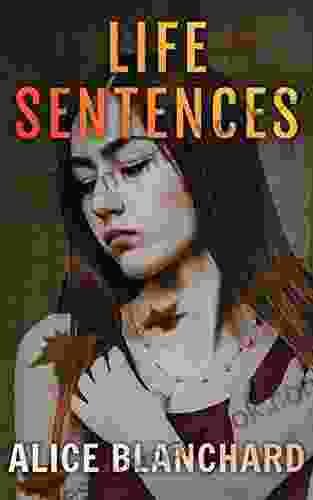
 Gabriel BlairUnraveling the Enigma of Alice Blanchard: Life Sentences in the Shadow of...
Gabriel BlairUnraveling the Enigma of Alice Blanchard: Life Sentences in the Shadow of...
 Ernesto SabatoProven Solutions To The Most Common Training Problems For All Ages Breeds And
Ernesto SabatoProven Solutions To The Most Common Training Problems For All Ages Breeds And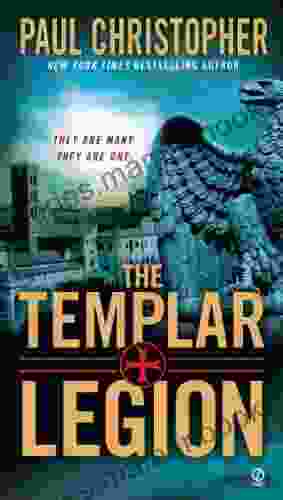
 Thomas HardyThe Templar Legion: A Brotherhood of Warriors, Spies, and Guardians of Sacred...
Thomas HardyThe Templar Legion: A Brotherhood of Warriors, Spies, and Guardians of Sacred... Jaden CoxFollow ·7.1k
Jaden CoxFollow ·7.1k Yasunari KawabataFollow ·6.6k
Yasunari KawabataFollow ·6.6k Vic ParkerFollow ·13.8k
Vic ParkerFollow ·13.8k Matthew WardFollow ·8.4k
Matthew WardFollow ·8.4k Colin FosterFollow ·15.7k
Colin FosterFollow ·15.7k Bernard PowellFollow ·14.8k
Bernard PowellFollow ·14.8k Scott ParkerFollow ·18.8k
Scott ParkerFollow ·18.8k Felix CarterFollow ·10.9k
Felix CarterFollow ·10.9k
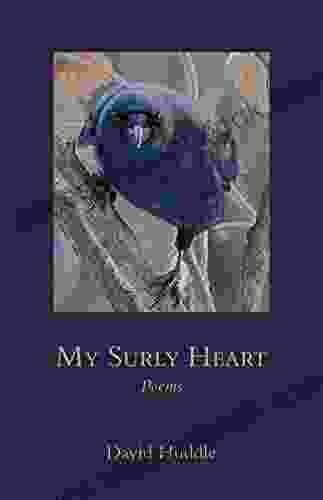
 David Mitchell
David MitchellMy Surly Heart: Poetic Expressions of Unrequited Love...
In the annals of...

 Jake Carter
Jake CarterBleach Vol. 50: The Six Fullbringers - A Comprehensive...
Bleach Vol. 50, titled "The Six...
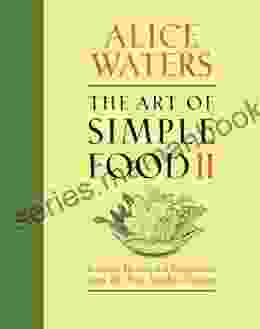
 Edward Reed
Edward ReedThe Art of Simple Food II: A Masterclass in Culinary...
In an era of culinary excess, where meals...
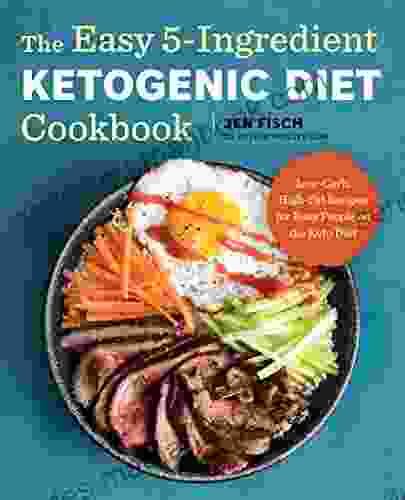
 Jarrett Blair
Jarrett BlairThe Easy Ingredient Ketogenic Diet Cookbook: Your Gateway...
The ketogenic diet,...
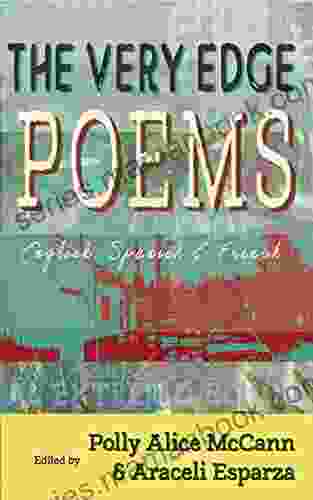
 Larry Reed
Larry ReedThe Very Edge Poems Polly Alice Mccann: A Poetic...
An to 'The Very...
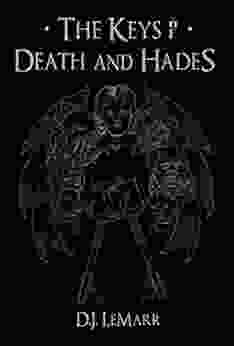
 Sidney Cox
Sidney CoxThe Keys of Death and Hades: Unlocking the Epic of...
In the realm of mythology...
4.6 out of 5
| Language | : | English |
| File size | : | 408 KB |
| Text-to-Speech | : | Enabled |
| Screen Reader | : | Supported |
| Enhanced typesetting | : | Enabled |
| Print length | : | 160 pages |


